Bruce Lehrmann defamation case: Noxious legal cookie can crumble five ways
According to an old proverb, the wheels of justice turn slowly but grind exceedingly fine. A few Sydney silks must be wishing they could cajole Justice Michael Lee to rise a little earlier next Thursday.
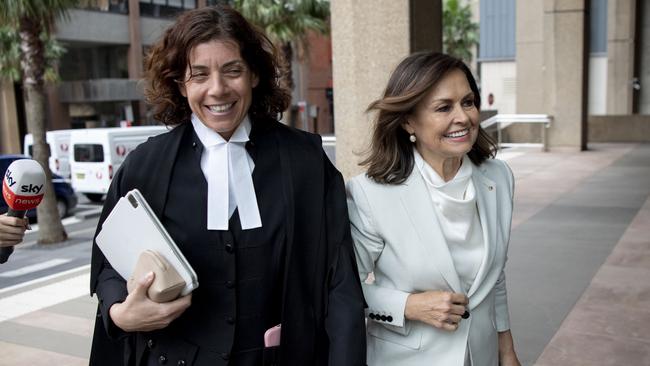
To be fair, Justice Lee has not been idle. But when he delivers his judgment in Bruce Lehrmann’s defamation case against Network Ten and Lisa Wilkinson at 10.15am in courtroom 21A next week, a number of senior lawyers at the centre of this roiling legal drama will be three levels below, appearing in a different defamation case in courtroom 18. Perhaps some of them will slip an AirPod into an ear to hear who wins and who loses in a trial that became a civil version of the criminal trial that was abandoned in late 2022.
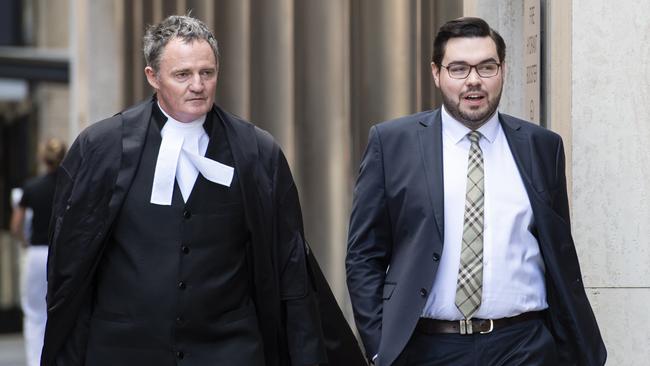
For whom the Federal Court wheels of justice grind finely in favour of is the talk of the town right now. Will there be a clear winner and a clear loser? When Lee reads a short version of his much longer written judgment, he will canvass critical issues at the centre of the most scandalous drama in recent times. A drama that saw a complainant use the media to air a rape allegation, enlisting politicians too. The juggernaut that ramped up the #MeToo movement in Australia soon turned into a political torpedo that helped turf the Morrison government out of office. Was it worth it? Was it fair? Who lied? How have two young people at the centre of this fared? How many people have been damaged? Who suspended their critical faculties during this drama?
Lee is an impressive judge. On Thursday he will answer many, though not all, of the questions at the centre of this mess. While lawyers have told Inquirer there are a number of possible scenarios, let’s not mince words. What is mostly on everyone’s mind is whether Lee will find that, on the balance of probabilities, a rape occurred that night in a ministerial office. Let’s start with the two most simple scenarios.
Scenario 1
Lehrmann wins big
Here, Justice Lee finds that Ten and Wilkinson failed to establish both defences they relied on – in shorthand, the truth defence and the qualified privilege defence. They failed to prove that Brittany Higgins’ rape allegation was substantially true, even on the balance of probabilities. Further, Ten and Wilkinson fail to prove that they behaved reasonably as journalists when investigating, preparing and airing the rape allegation, and so they lose the qualified privilege defence which could have protected them even if they can’t prove the rape allegation was true.
It is game over for Ten and Wilkinson. Lehrmann wins. Big time. Some lawyers not associated with the case are predicting that Lee will award damages, including aggravated damages, into the hundreds of thousands of dollars. And Lehrmann’s legal costs will be paid by Ten.
And Ten and Wilkinson and many other witnesses – including Higgins – can expect a mother lode of adverse findings. Lee may find that they did not behave reasonably when airing the unproven allegations, that they didn’t investigate Higgins’ serious allegations properly, that they didn’t give Lehrmann sufficient time to respond, that they treated Fiona Brown with such flagrant disregard that it infected the entire program. And more.
Ten and Wilkinson will feel lasting reputational pain. Ten will suffer the added pain of paying up. In this scenario, it doesn’t end well for Higgins, either. A finding that no rape occurred, even on the lower civil standard of proof, will surely damage her credibility too.
Lee may find that some of Lehrmann’s evidence was improbable or dishonest. That he didn’t tell the truth about where he was when he was summoned to a meeting with Linda Reynolds’ chief of staff Fiona Brown. That he tied himself in crazy, incredible knots over how many drinks he did or didn’t give Higgins that night.
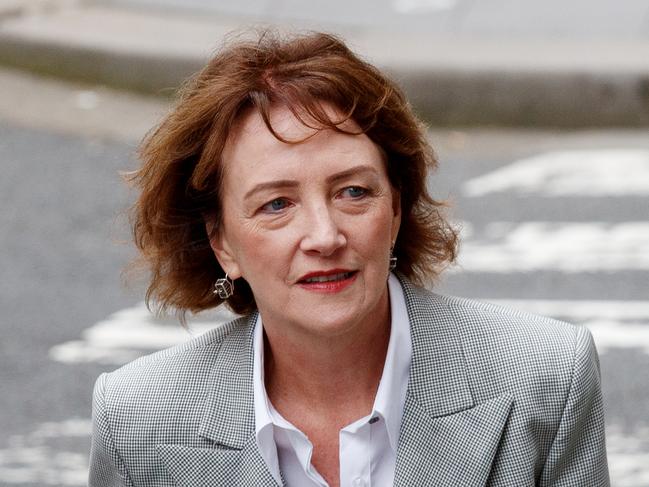
If Lee decides that there should be some reduction for inconsistencies or lies in Lehrmann’s evidence, he may nonetheless award significant damages, including aggravated damages, especially for the damage done to Lehrmann by Wilkinson’s infamous Logies speech.
To be sure, Lehrmann is not Geoffrey Rush, the Oscar-winning actor who received $2.9m in a defamation case in 2020. But Lee may find that a young man’s life has been upended, his reputation damaged, and only a thumpingly big aggravated damages award will signal to the media, and the community, how egregious it was for Ten to air an unsubstantiated allegation that didn’t even meet the lower burden of proof, let alone the criminal standard, and by journalism that didn’t meet the requisite standard of fairness.
Lee may well decide that Ten and Wilkinson should be punished further for celebrating Higgins at the Logies and trampling on Lehrmann’s right to the presumption of innocence and a fair trial just days out from a trial. Lee’s message will resonate across the country, reminding all in the media that the presumption of innocence should be at the forefront of a journalist’s mind, not relegated behind commercial interests or self-interest.
In this scenario, where Lee expresses significant displeasure at Wilkinson’s Logie speech, he may well find that Ten’s lawyer Tasha Smithies should never have given legal advice approving it. That will hurt.
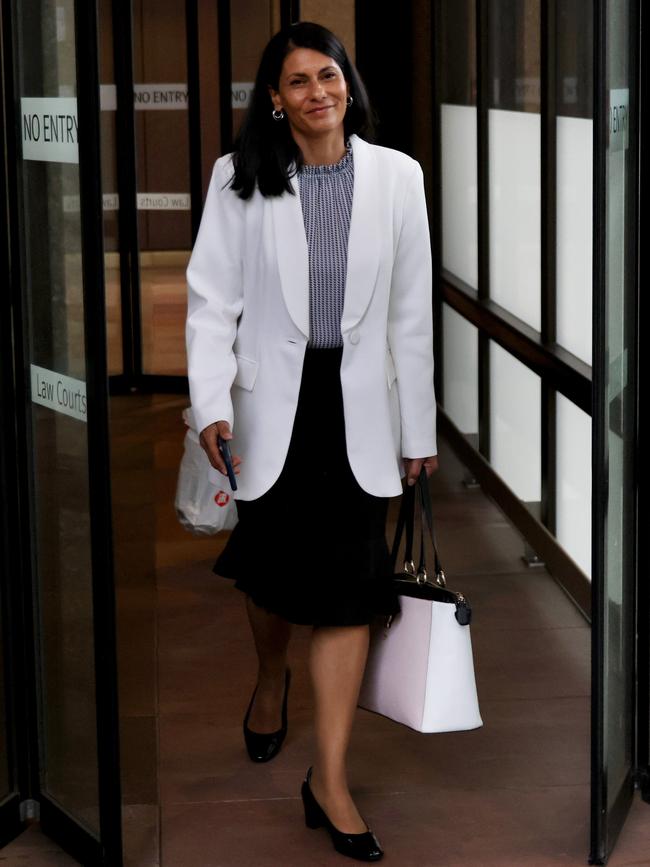
Recall what Lee said during the trial: “It is inconceivable to me that any legally qualified person could have given advice … that a Crown witness saying what was said in that Logies speech was anything other than inadvisable and inappropriate,” he said.
Ten chief executive Beverley McGarvey and other senior Ten executives might expect some sharp adverse findings, too, for approving the speech, for being more concerned about celebrating The Project and Higgins at the Logies than a fair trial for the accused, for refusing to hand over Smithies’ legal advice in court by claiming privilege, and for appearing to allow the public to think that The Project celebrity went rogue on stage at the Logies.
Does Wilkinson get off the hook in this scenario? In court, Lee asked Wilkinson whether one would ever celebrate the courage of someone if one thinks that person is lying. After an awkward pause, Wilkinson said no. In this scenario, Lee may find that it was entirely disingenuous for Wilkinson to claim to be a senior, experienced highly professional journalist on the one hand, but then to wipe her hands of The Project’s journalism and the Logies speech. I
s she the equivalent of a naive newsreader or an experienced journalist? She can’t credibly claim to be both, Lee may say. Indeed, you don’t have to be a journalist in your 60s, let alone Rumpole, to understand the notorious Logies speech would undermine a fair trial. Lee might find Wilkinson wasn’t shy about becoming a central part of the Higgins juggernaut – prosecuting the political cover-up story, dragging Fiona Brown into this tawdry tale with no evidence, turning up at the March4Justice, and so on.
Ten will have its cheque book ready. But Wilkinson’s house is safe; Ten will pay the damages award and her legal costs.
Scenario 2
Ten and Wilkinson win, a rape most likely occurred
In this scenario, Lee finds that, on the balance of probabilities, the imputation that Lehrmann raped Higgins in Parliament House in March 2019 is substantially true, and Ten and Wilkinson win.
They have made out their truth defence.
Under section 140 of the Evidence Act, Lee must take into account the gravity of the matter alleged, meaning Lee will require more evidence to satisfy the standard of proof for a rape allegation than if a lesser crime had been alleged.
In this scenario, Lee must find that, on the balance of probabilities, Lehrmann raped Higgins – despite inconsistencies in Higgins’ evidence, despite Lehrmann’s denials, and despite the fact that there are other possible scenarios, for example, that Higgins and Lehrmann may have planned to have sex, that Higgins removed her clothes, lay down on a sofa, fell asleep and when Lehrmann found her asleep, he left.
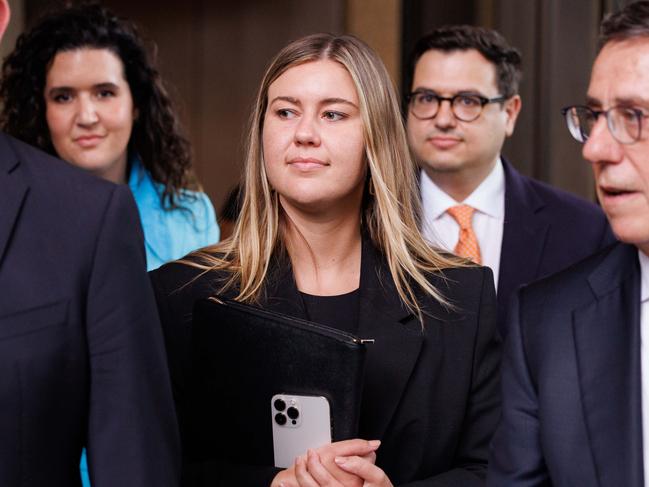
Once the truth defence is made, it’s over for Lehrmann.
It won’t matter if Ten was guilty of rotten journalism when they aired Higgins’ interview on The Project. It won’t matter if Lee thinks that Wilkinson came across as flaky or unbelievable when claiming that she didn’t play a major role in The Project’s handling of the story.
Lehrmann gets nothing. Costs will be ordered against him. If he can’t pay, then Ten will stump up for the colossal fees racked up by a line-up of barristers and solicitors who acted for Ten and Wilkinson.
Lehrmann’s own lawyers will take a big financial hit, as it seems unlikely an impecunious Lehrmann can pay anybody’s legal bills. Lehrmann may be forced into bankruptcy.
Scenario 3
Sex occurred, Lehrmann marked down for lying
There are other mid-course, more complicated scenarios where Lee finds that Ten and Wilkinson proved part of their truth case – for example that, on the balance of probabilities, sex occurred but that it was consensual (or at least the defendants, and their witnesses, failed to establish that it was non-consensual).
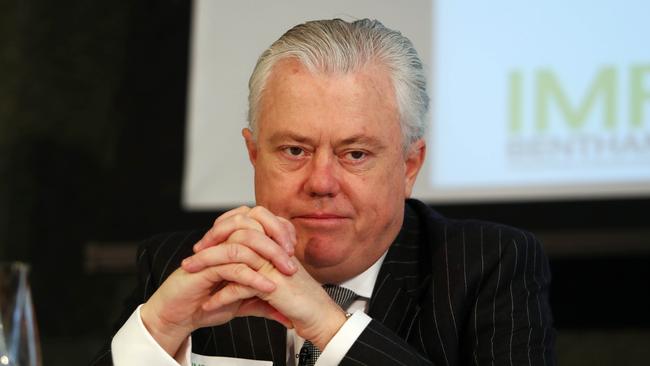
Lee cannot point to any direct evidence that sex occurred. He would have to reject Lehrmann’s version that he turned left and Higgins turned right that night. And that after he left he didn’t see her again that night. Lee will have to be satisfied that notwithstanding Higgins’ other false statements, about seeing doctors and so on, that sex occurred. If Lee finds that Lehrmann lied to the court about sex, he may decide that the lie is egregious enough to warrant substantially reducing damages.
In this case, even though Lehrmann has technically won, he’s also partially lost. He may get an order for costs but if he does not also get a big damages award, he will likely be badly out of pocket because cost orders – unless he gets a very rare order for indemnity costs – never cover all the legal costs actually incurred.
Though lawyers predict that Lee will find many witnesses gave weak evidence, even lying to the court, including Lehrmann and Higgins, they describe this scenario as a difficult one for the judge. It may require Lee to distinguish between Lehrmann potentially lying, or giving implausible evidence, about sex taking place, or Higgins potentially lying, or giving implausible evidence, that it was a rape.
In this scenario, Lee will have to ask himself what is worse: the public knowing that Lehrmann is a liar or the public thinking that Lehrmann is a rapist? In this scenario, costs will be interesting. Lee may decide to express disapproval of a plaintiff lying to the court when bringing a defamation claim by giving Lehrmann only part of his costs.
Scenario 4
Lehrmann told a lie, but Logies speech stinks more
One possibility is Scenario 3 – with a twist. Lee finds that Lehrmann lied about sex, and that Lehrmann’s lie warrants a big reduction in damages – and then the kicker. Lee finds that Ten and/or Wilkinson behaved like such reprobates that Lehrmann deserves significant aggravated damages.
In this scenario, Lee finds that Ten and/or Wilkinson behaved so wickedly when investigating and airing the Higgins interview, and in relation to the Logies speech, that aggravated damages are warranted.
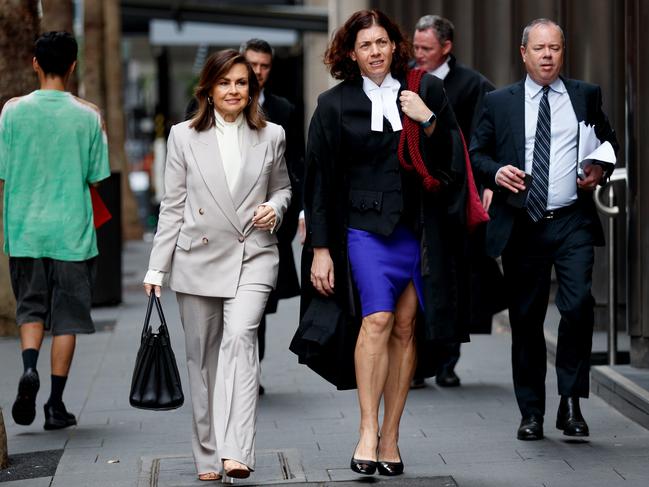
Scenario 5
Lehrmann wins, Pyrrhic win for Wilkinson
In this scenario, Lee finds that the evidence is such that neither Ten nor Wilkinson can rely on the truth defence, and that Ten failed to make out the qualified privilege defence because those at The Project who were responsible for putting the Higgins interview to air did not behave reasonably. But Lee agrees with Wilkinson’s submissions that she had no real control over how the interview was checked, verified, presented, or over how Lehrmann, Reynolds and Brown were treated. Lee finds that she was not responsible for the damage done by the Logies speech because Ten’s lawyers and senior executives approved the speech and encouraged her to give it.
Lehrmann walks away a winner, with a stonking big damages award. Wilkinson is off the hook, but she has secured a Pyrrhic victory. By running the line that she had nothing much to do behind the scenes with The Project’s program beyond interviewing Higgins it undermines her portrayal of herself as being a hands-on great investigative journalist. She wins by establishing, in effect, that she was just the equivalent of a newsreader who did what she was told and couldn’t work out, until prompted by Lee, that celebrating Higgins at the Logies amounted to undermining a fair trial. Ten would be the biggest loser. Given its well-publicised difficulties on other fronts, Ten’s future, at least in its current form, is a question to be pondered.
Footnote
Perhaps Lee’s judgment will set out a different permutation but one thing is clear – all eyes will be on this Federal Court judge on Thursday morning to learn what he makes of some critical parts of this repugnant, never-ending saga.
Click here to sign up to Ipso Facto, The Australian’s weekly legal affairs newsletter.



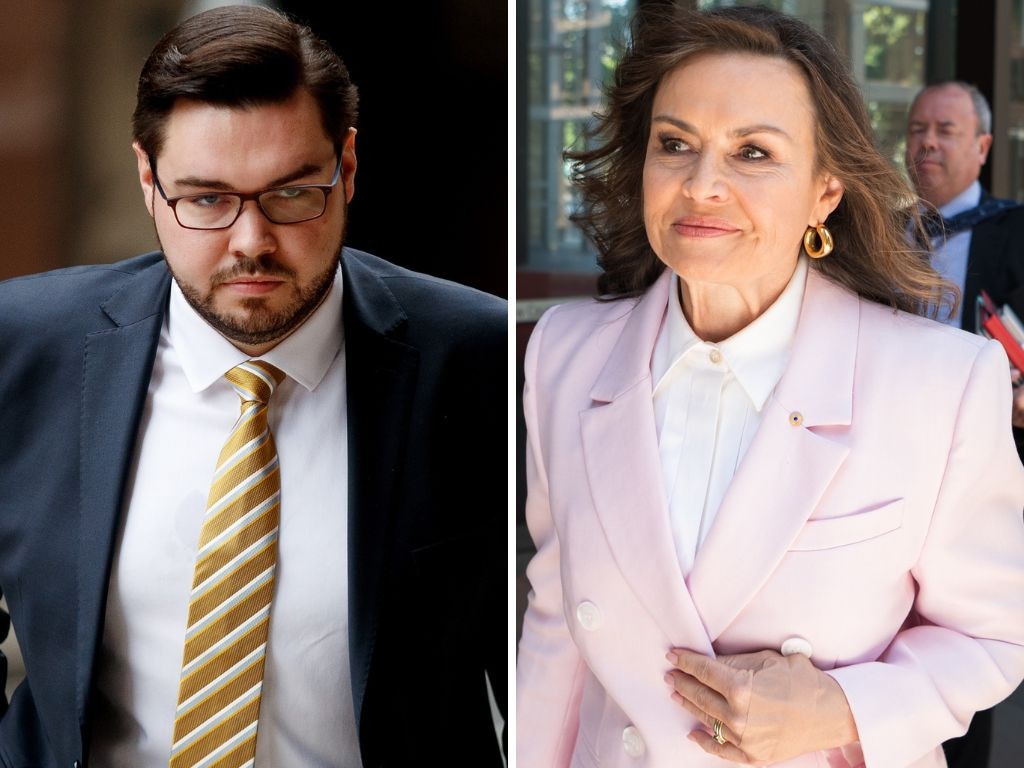
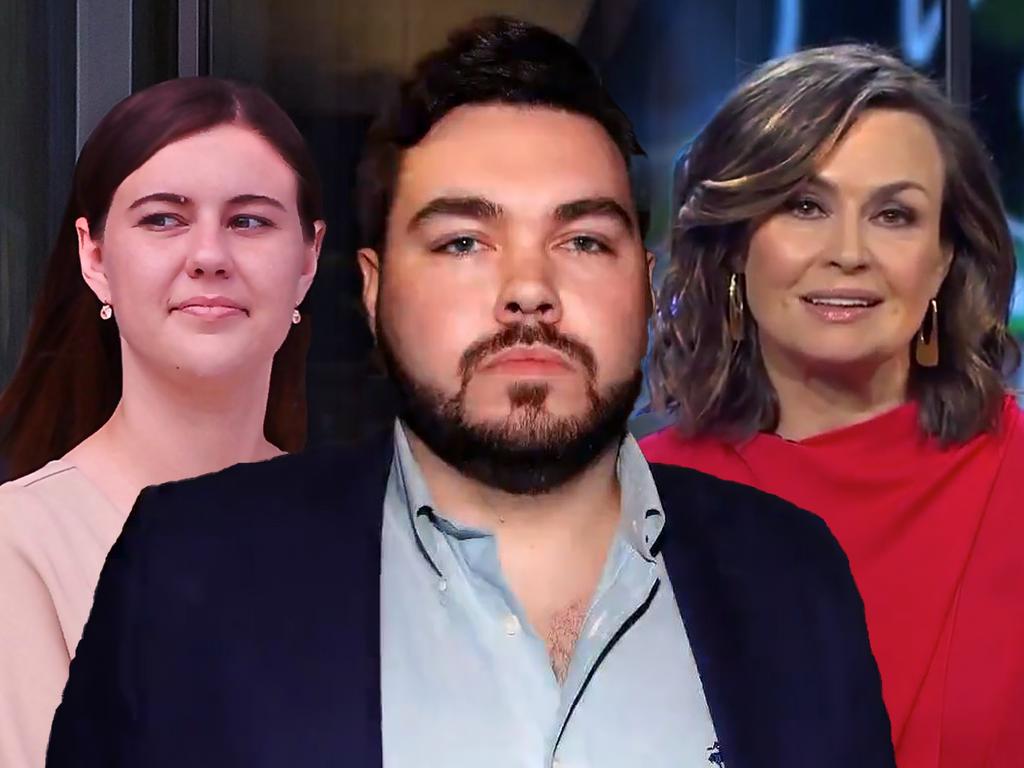
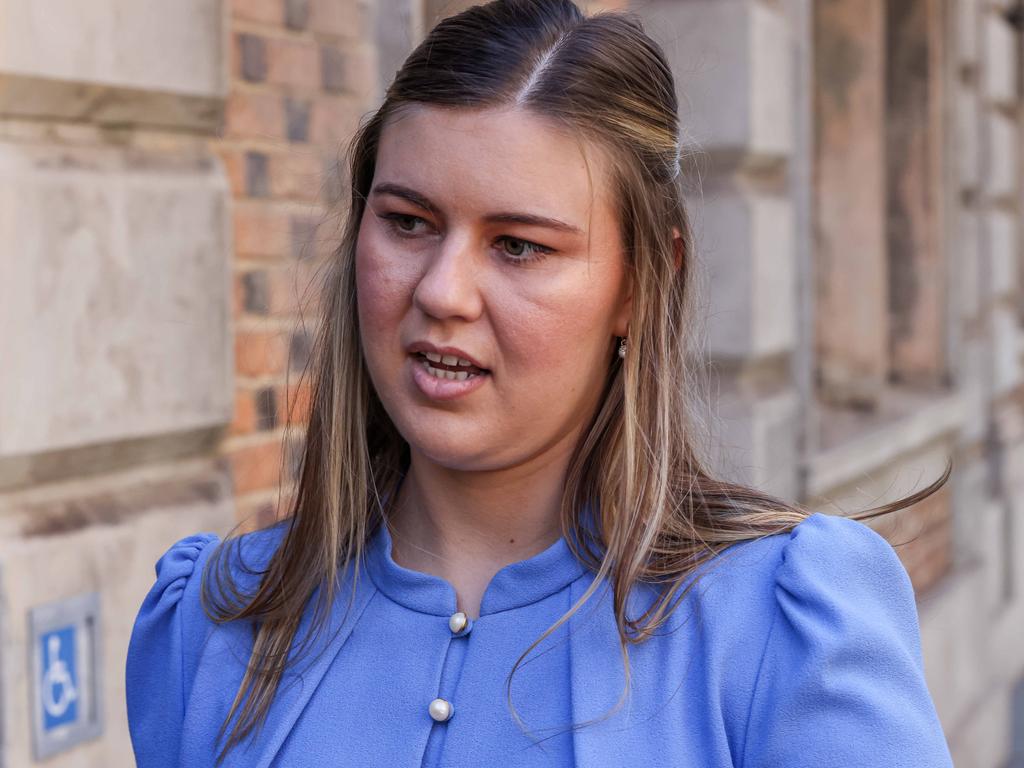


According to an old proverb, the wheels of justice turn slowly but grind exceedingly fine. A few Sydney silks must be wishing they could cajole Justice Michael Lee to rise a little earlier next Thursday.